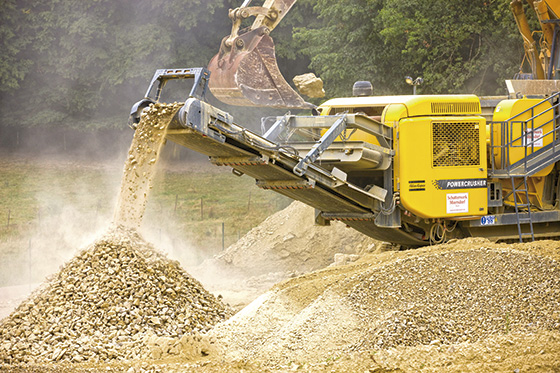Path of success

Atlas Copco celebrates 60 years in Brazil with a path highlighted by innovation and presence in the most important works of engineering carried out in the whole country.
Brazil was always considered the land of opportunities. Not even decades of failed economic plans, ultra-high inflation, successive changes of currency, uncontrolled exchange and other setbacks were obstacles for the entrepreneurs to open new ways.
One of the more shining brands of Brazilian industry of equipment, Atlas Copco is one of these exemplary cases. Established in Brazil during 60 years, the Swedish company was present in some of the most important works of infrastructure carried out in the country, many of them of huge dimensions. In fact, its path of success is marked by its participation in the construction of hydroelectric plants, subway lines, airports and roads.
Its products may be seen anywhere you look. During the sixties, the company took part in the construction of Tucurui Hydroelectric Plant and in the next 30 years it would also contribute from the construction of Itaipu Plant, the North-south Line of Rio de Janeiro Subway and the longest tunnel of Brazil—in the Imigrantes Highway—to the recent works of Belo Monte, just to show some examples. In this list, the most recent historic achievement of the company was the participation in the Ford Amazon Project, which installed an Industrial complex in the Northeastern Region. The manufacturer supplied electronic screwdrivers and centrifugal compressors, among other products.
In addition, its portable machines are present in industries such as automotive, aeronautical (its Industrial Technique Division is currently the largest supplier of this industry in Brazil) and of oil & gas. “In fact, since Atlas Copco arrived in 1955—at that time represented by Luporini & Irmãos—we started a story of commitment with the country’s growth”, comments Claes Backlund, vice-president of the company in Brazil. He points out that this was the start of a long path for the company, which would gain muscle in the next decades with the installation of manufacturing and administrative units. “And during this period, we did not always deal with a steady economy. We remained committed with this country and consequently we got results.”
INNOVATION
Innovation and creativity were always present along the 140 years of company’s history, currently working in more than 180 countries. For many people, this is an example of organization to be followed: the company has also a history of success below the Equator.
With its visions “First in Mind” and “First in Choice”, Atlas Copco follows a path of innovation that allowed him to consolidate step by step its work in the Brazilian market, always following the internalization guidelines established by the Scandinavian headquarters. In 1959, the company inaugurated in Santo Amaro (SP) its first unit for production of portable drills. Until today the manufacturer concentrates its activities in the state of Sao Paulo, with plants in Alphaville and Sorocaba and with head offices in Barueri. But business evolution also leaded the company to other areas. Currently, its structure has branches in five states of the federation, with distributors in almost all regions of the country.
For good reasons: by the second consecutive year Brazil is the fifth largest market of Atlas Copco in the whole world. The yearly report of 2014 shows an organic increase of two percent and incomes above 78 million reais (more than 25 million of Swedish Krona), what corresponds to a profit margin of 19.3 percent. “For the group, Brazil will always be very important in the area of services and we are engaged with that”, emphasizes Backlund. “Our efforts are turned to offer products and services that are safer, more efficient in energy terms, more ergonomic and with lower environmental impact.”

Av. Francisco Matarazzo, 404 Cj. 701/703 Água Branca - CEP 05001-000 São Paulo/SP
Telefone (11) 3662-4159
© Sobratema. A reprodução do conteúdo total ou parcial é autorizada, desde que citada a fonte. Política de privacidade














